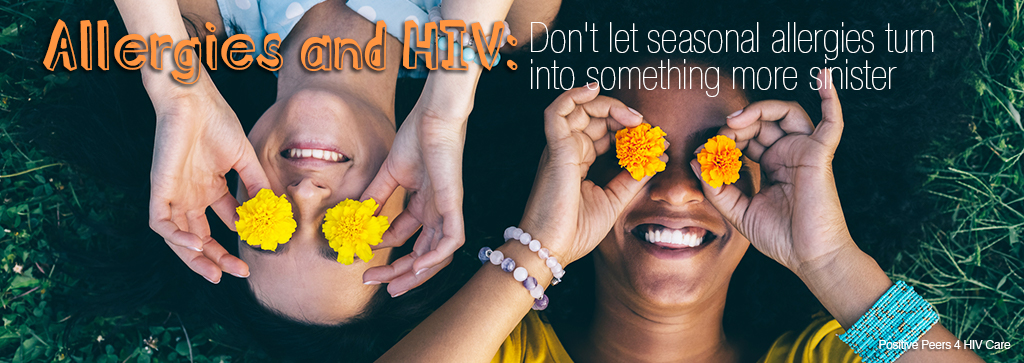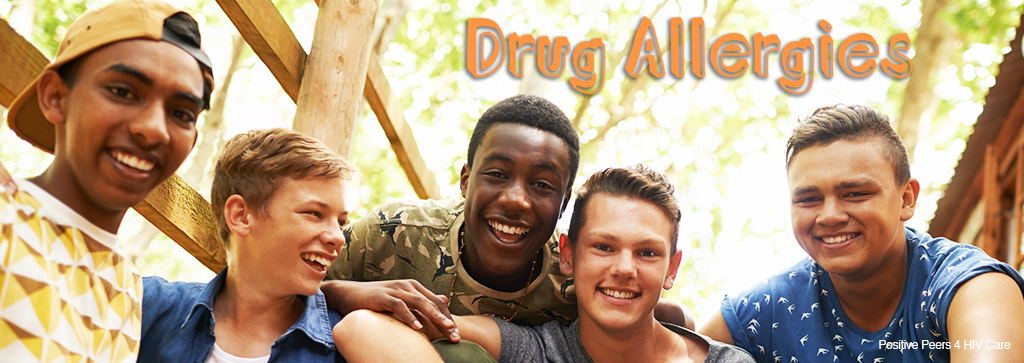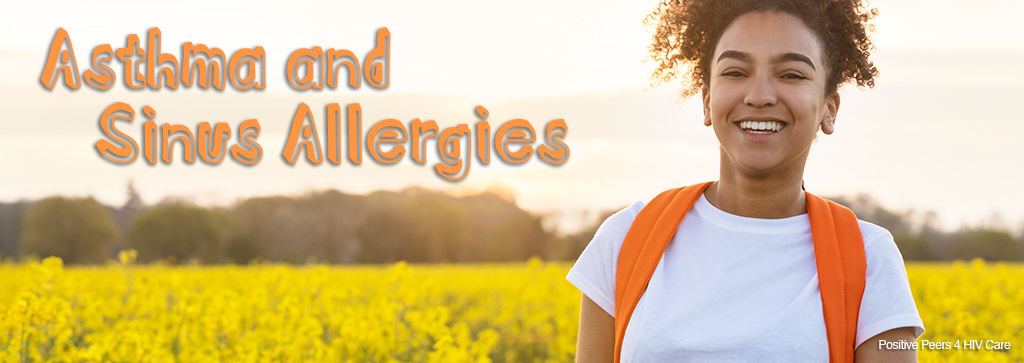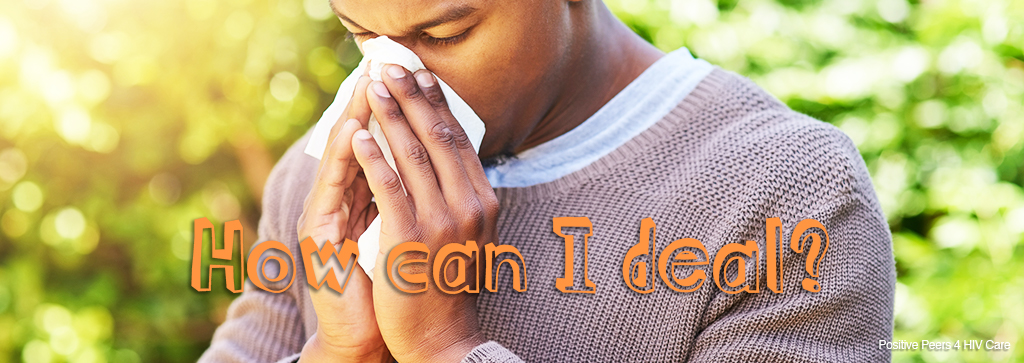
By: Ann K. Avery, MD, Infectious Disease Physician at MetroHealth Medical Center
Did you know that people living with HIV are more likely to have allergies? Crazy, right?! But it’s true. And we are here to tell you how to deal with those pesky allergies during the summer months.
But first, what is the connection between HIV and allergies? People living with HIV infection are known to have high levels of allergic antibody (IgE), especially as the CD4 count drops. These high IgE levels don’t necessarily make allergies worse, but they are a sign of worsening immunodeficiency.
What does that all mean exactly? Basically, if you’re living with HIV, you might experience more allergic symptoms because of it, like runny nose, watery eyes, and more. Here are some common allergies and allergy-related problems people living with HIV might experience.
Drug Allergies
Did you know that reactions to trimethoprim-sulfamethoxazole (you may know it as Bactrim) happen in more than half people living with HIV? Bactrim is a sulfa-containing antibiotic and people with CD4 counts less than 200 are often prescribed Bactrim to prevent AIDS-related pneumonia. People living with HIV have higher risk of drug allergy reactions because of disrupting normal immune system regulation. But that’s the only common drug allergy we see with those living with HIV. Don’t worry, if your CD4 count is low and you need pneumonia prophylaxis, there are other things that can be prescribed if it turns out you’re allergic to Bactrim.
Another drug allergy reaction is to abacavir, which is a nucleoside reverse transcriptase inhibitor that can cause a life-threatening hypersensitivity reaction in 5-8 percent of people living with HIV. If your doctor is considering prescribing this drug, they’ll talk it through with you and will order a hypersensitivity blood test. If the test comes back that you don’t have the gene related to that reaction, then you’re in the clear and safe to take abacavir.
Asthma
Ugh. Asthma. Did you know Asthma, allergies and eczema are related to each other? Studies have shown that men living with HIV have high rates of wheezing compared to men who aren’t living with HIV. Children who are living with HIV and taking HIV medications have also shown an increase in asthma compared to children who aren’t living with HIV.
Sinus Allergies
Ever notice that you sneeze a lot? That’s because people living with HIV show very high rates of nasal symptoms. Studies actually show that 60% of people living with HIV have nasal allergy symptoms of some sort.
How can I deal with annoying allergies?
We know, allergies are super annoying to deal with, especially when all you want to do is bask in the hot summer sun by the pool with your besties. Sneezing and runny noses are the last things you want to deal with. Here are some tips on how to nip those allergies in the bud right away:
- Determine what the allergy-like symptoms actually are. It is common for allergies to develop or go away as you age, so you might experience a new allergy any time. However, with COVID-19 still lingering around, make sure to pay attention to all of your symptoms to determine if it’s maybe a cold or virus, first and foremost. Call and talk to a medical professional if you’re not sure.
- Take some symptom relief meds. Sometimes over-the-counter antihistamines and/or decongestants will do the trick. Take something that can relieve you from that stuffy nose, sniffles and itching.
- Try some saltwater. That’s right, good ol’ saltwater. If you aren’t a fan of taking allergy meds, try a saline nasal rinse to help clear your nasal passages.
- If you know you are allergic to things like pollen, grass or ragweed, workout inside and close those windows when those allergens are in season! Who doesn’t love going for a jog in the warm weather, but limiting your outdoor activities at certain allergy flare-up times will help relieve some of those allergy symptoms.
- Take care of yourself! Sometimes allergies can really take a toll on your body, so take them seriously. If you feel totally lousy, listen to your body and rest. Go to bed early or take a sick day to just sleep. Like anything else, overdoing it while you feel awful will only make you feel worse.
Related Blogs:




